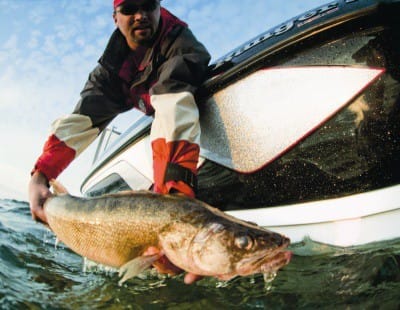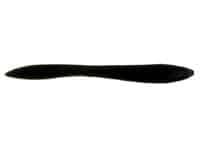Submitted By:
Cody Roswick – USA Guest Author

November isn’t only a time big bucks start chasing does or when camouflage becomes a fashion statement. For northern anglers, this season signals a call to the water in search of walleye. Fishing for walleye this time of the year has many advantages deer hunters only wish they had.
Throughout November, and long into December, anglers enjoy the comforts of open water and limited boat traffic. Personally, as a cold-weather angler, I enjoy the freedom that this time of the year allows. I can hit all of my hotspots without fear of stepping on toes or finding someone catching fish out of my honeyhole.
Another luxury afforded to anglers is the second chance. A shot at other trophy species, both in and out of the water, are hard to come by, but walleye anglers’ second chances are virtually guaranteed. When chasing these toothy creatures, opportunities are awarded to those who do their homework and are well equipped.
 Walleye anglers have a wide range of bait options to choose from; whether it is live leech or artificial – either will do the trick. But why not save time and money with Berkley Gulp! Alive! 5 ½-inch leeches or 3 ½-inch minnows?
Walleye anglers have a wide range of bait options to choose from; whether it is live leech or artificial – either will do the trick. But why not save time and money with Berkley Gulp! Alive! 5 ½-inch leeches or 3 ½-inch minnows?
These bait options give walleye anglers all the advantages of live bait but enhances it with the strong attractant that fish bite and won’t let go. Plus, baits are easily stored away for later use. You don’t have that kind of convenience with live bait. Gulp! Alive! scent creates a trail that is irresistible to fish, expanding the strike zone. But to make the most of a scent trail for hungry walleye, anglers need to utilize the correct technique and target the hotspots.
During the cold months, jigging is popular because baitfish have moved into a fall/winter pattern. Jigging for walleye can produce monster fish. Walleye are feeding on baitfish that provide vital nutrients for the upcoming spring spawn. The 5 ½-inch leech and 3 ½-inch minnow will be a welcomed site for big walleye because during the winter months baitfish become scarce and walleye begin feeding on larger baitfish.
As walleye anglers, we know there are certain areas that hold big walleye that consistently deliver. Areas to target when jigging include sharp drop off areas, mid lake basin, deep humps and rock piles. Targeting the shallows at night is also a productive method, as hungry walleye seek baitfish that have moved to the back of coves and shoreline structure to escape predatory fish.
Depending on your state’s fishing regulations, one classic jigging technique that doubles the action is running two vertical jigs from the front of the boat. As the fishing heats up during the mid-day hours, I run two vertical jigs. One rig is set with 3/8-ounce jig tipped with a 5 ½-inch leech, and my second jig is tipped with the 3 ½-inch minnow. Running two different presentations give walleye a variation on bait options. To run a double jig is quite simple; stand at the bow of the boat and drop both lines to fish that were located on the depth finder. While popping both rods at once and maintaining control of the boat seems difficult; time on the water can perfect this technique.
My favorite jigging set up is a Berkley Series One 6-foot, 6-inch medium-action spinning rod paired with an Abu Garcia Sorön 10 spinning reel. I spool the Sorön with 8-pound Berkley Fireline Crystal. Tied with a Palomar knot, the leader should consist of six feet of 6-pound Trilene 100 percent Fluorocarbon. This gives me a stealthy presentation to line-shy walleye. The knot that ties everything together is a basic Palomar knot – or if you prefer – a Trilene knot would work as well.
So what do you do when you’re a walleye angler that is also an avid hunter? Faced with dividing time between water and woods, these times call for some serious planning measures. Be patient; and hit the woods early in the fall to get your fill of hunting. Then move to the waters to catch walleye. Life doesn’t get any better during the fall and winter months for the avid outdoorsman, but time on the water can produce results and plenty of trophy fish.



